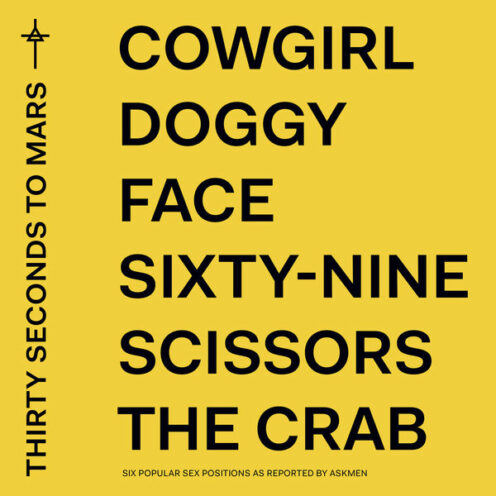
On Thirty Seconds to Mars’ fifth album, titled America, Jared Leto and his bandmates experiment with big U2-type choruses, patriotic themes, and the deeper meanings of life. The band has long-since been known for their anthemic choruses and there are plenty of those to go around on America, as well as great production and a polished sound fit for a major label and radio outlets alike.
The album itself is front-loaded with the previously released singles “Walk on Water” and “Dangerous Night.” The one-two punch of these tracks play off of each other well, with the latter being the more memorable of the two. Leto sings on the chorus that it’s a “dangerous night to fall in love/don’t know why we fight what we’ve become.” The themes of loss, heartbreak, and longing for a change in the status quo run rampant throughout the album.
On “Rescue Me,” another early album standout track, we see Leto struggle with the “demons in his mind” over a programmed beat and electronic music backing. The best way to describe the rest of the album is “brooding” as it never reaches the earlier heights of the singles and makes the listening experience more reflective than reactive.
Leto claims to have a “method to the madness” on “One Track Mind,” which features a rapped verse from A$AP Rocky that comes off a little awkward. “Monolith” is a mid-album snoozefest, but the band recovers slightly with the Halsey-assisted track “Love is Madness.” The verses continue the earlier vibes of the two aforementioned tracks, while the chorus is the saving grace for the song.
“Great Wide Open” tries to reach for the same heights as U2’s “I Still Haven’t Found What I’m Looking For,” with its gospel chorus backing and floaty lyrics. However, it seems that the rest of the band is taking a backseat to Leto on this album as his vocals being the focal point doesn’t leave much room for the rest of the band. The track comes across as more of an Angels and Airwaves type track, with a lot less creative guitar work.
The majority of the rest of the album features quieter tones, acoustic guitars, and honestly just limps to the finish with the closing track “Rider.” Leto may have had a lot of fun making this record, but he may want to check in on his bandmates to see if they are still going along for the ride with him. This album is not as bad as some early reviews have showcased, but it’s also not much better either.